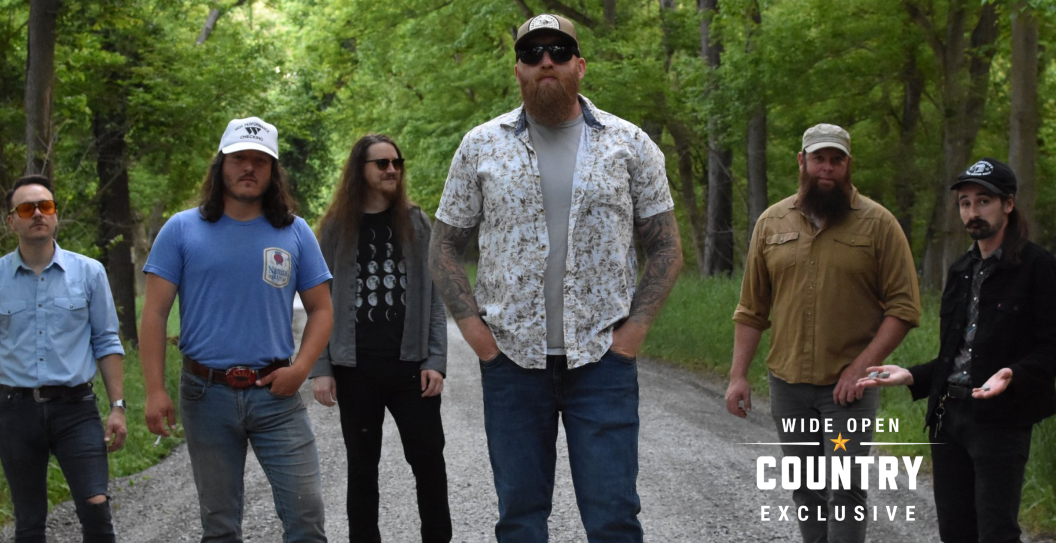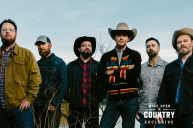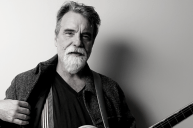Sometimes. peculiar punishments have a silver lining. Just ask Logan Moore, who discovered his ability to sing after being forced to do so in place of talking during his basic training for the Air Force.
"It quickly became this thing where I wanted to prove them wrong," Moore tells Wide Open Country. "I'd been going through a lot of stress because my sister had passed away not long before that. All this stuff boiled up in me and I just belted it out, and little did I know I could actually sing on key. It stunned everybody, then reality set in and my instructors jumped on me."
Now removed from his six years of service, Moore is making good on his newly discovered talent as a guitarist and vocalist for Low Water Bridge Band. Founded in 2020 by Moore and childhood friend Riley Kerns (drums), the band is quickly becoming one of the most captivating new acts in all of Appalachia with its haunting melodies and heartfelt hymns from home.
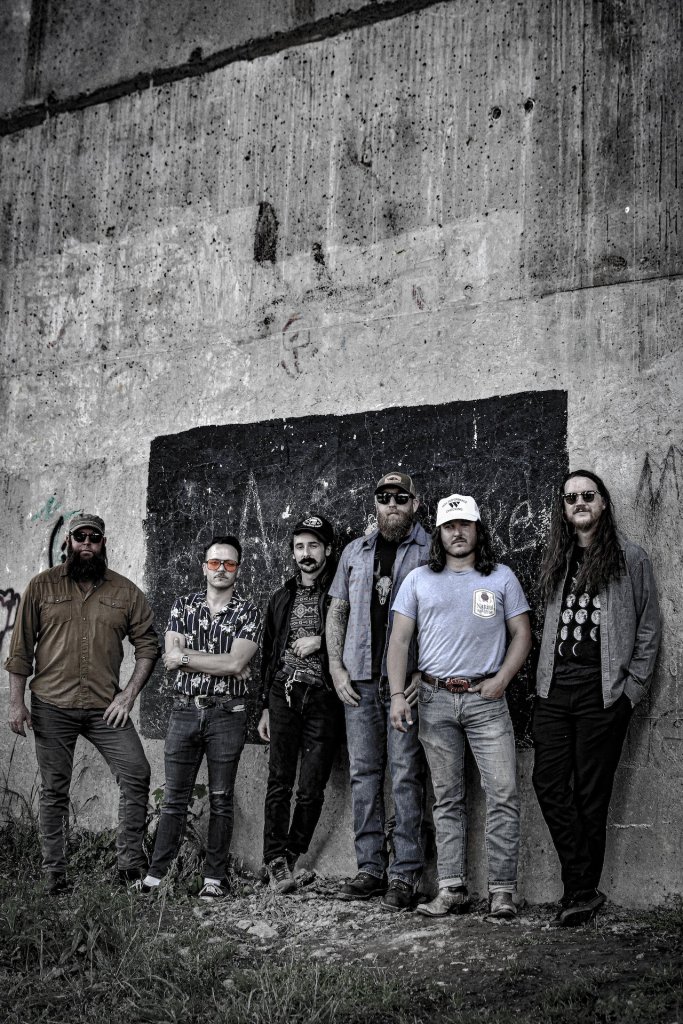
IVPR
Now flanked by Riley's brother Alex (bass), Justin Carver (pedal steel, banjo), Rudy Bzdyk (piano, fiddle, trumpet) and James "Chainsaw" Montgomery (electric guitar), the fast-rising band is set to release its second album, Back To The Valley, on Nov. 17. An avid hunter and beekeeper, Moore likened the yearlong process of bringing the 10-song project to life to that of a successful kill or honey tap.
"It takes a lot of patience to come up with a good product," says Moore. "In hunting, I may pass on a small buck because I know there's a bigger one out there. Similarly, in beekeeping it takes all year to harvest your honey. You're constantly monitoring the hives to make sure everything is going well, waiting for the right moment to pull all that honey. It's the same with music. We want to take our time to make the product right before releasing it, and when we do we stay patient and don't expect an instant payoff. Our goal is to draw bigger crowds and build our brand, but just like beekeeping it takes time."
Beginning with the eerie "Siren of the Shenandoah," the album paints a majestic portrait of small-town mountain life and what keeps the band returning Back To The Valley that made them. This includes everything from eerie retellings of moonlit canoe trips ("Siren of the Shenandoah") to heart wrenching loss ("Slow Down") and, of course, hunting.
The latter best comes into focus on "Dear Lord," a trippy and twangy number about people who ask for things even though they haven't earned it. The inspiration for the tune stems from a trip Moore took with his cousin and his girlfriend to a local gun bash on the opening day of hunting season where everyone else was walking away a winner but him.
"We were sitting there eating lunch while everyone around us was winning guns, bacon, and other items being raffled," says Moore. "Even my cousin won a gun. After a while, his girlfriend and I began joking that 'Dear Lord, I promise I'll never drink again if you let me win a gun' because we were so desperate."
Throughout its verses, the song slowly evolves as Moore's pleas for netting a new Winchester rifle grow more desperate. Eventually, an echoing vocal effect that Moore first heard on Charley Crockett's version of "Heartbreak Affair" takes hold, pushing back against his claims of being a changed man due to cutting down to only 10 beers a day.
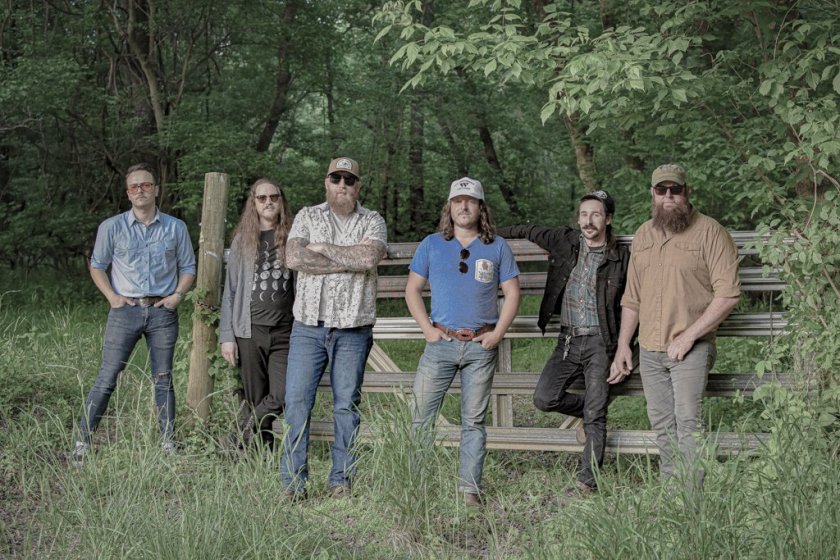
IVPR
Subtle changes in each verse and chorus can be heard all over the album, elevating each respective story and soundscape they're found embedded in. This also goes for the record's de facto title track, "600 Reasons." Born out of the band's first — and underwhelming — trip into Nashville, the initial run through its chorus hears the band exclaiming, "Get me the hell down to Nashville, get me out of the valley" before reversing course the second time through, instead singing "Get me the hell out of Nashville, get me back to the valley."
"It was one of those things where we had all this anticipation for it and it fell short of our expectations," says Moore. "When you're on the road, you look for other musicians to take care of you while you're in their town, but we didn't feel that when we went there. We still hung in town that night and had a blast before waking up hung over the next day and hitting the road for home. Immediately, we hit traffic, prompting Riley to look at me and say, 'Get me back to the valley.' We stewed on that line for a week or two before sitting down and writing the song in about 20 minutes."
Life and music can both be a bumpy — albeit rewarding — road, and Back To The Valley captures the full spectrum of that. It's not always the most glamorous work, but Moore says "the juice is worth the squeeze," and who can blame him? For someone who didn't know he could sing until he was forced to, he has conjured up quite the career as he aims to keep his late sister's spirit and legacy living on.
"Looking back, the timing of it was everything," says Moore. "My sister had just passed, and if you knew anything about her, it's that she was the best singer. Every time I sing now, I feel like I'm channeling a little bit of her. My goal is to have this band climb as high as possible, but a part of me is also just happy to be doing this for her."
READ MORE: Abby Hamilton Sheds Her Insecurities In Majestic Fashion On '#1 Zookeeper (of the San Diego Zoo)'
